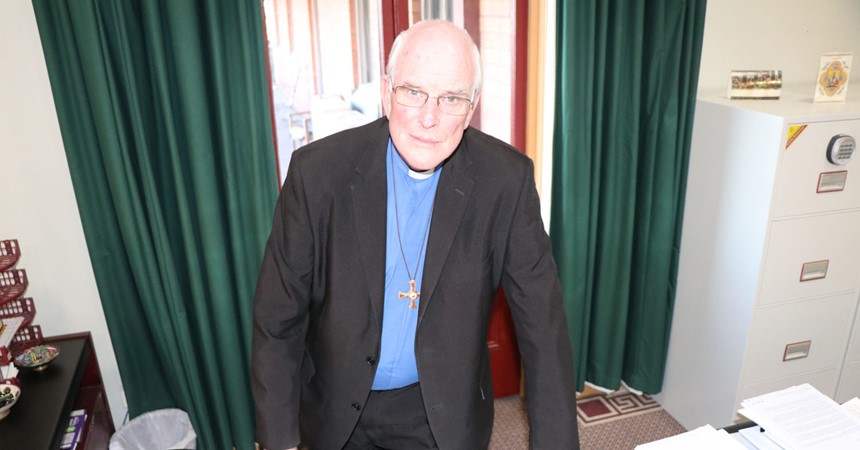Joe Zabar, deputy chief executive and director of economic policy at Catholic Social Services Australia (CSSA) identified this disturbing reality. He outlined the strong determination to advocate for the country’s lowest income earners and welfare recipients.
“It is a very important function of the Catholic Church to argue in this space for an increase to both the minimum wage and Newstart,” Mr Zabar said. “If we don’t step up, who will?”
In May, Bishop Bill Wright was a member of a church delegation, the Bishops Commission for Social Justice – Mission and Service, which told the Fair Work Commission that low-income families had not been “sufficiently protected by the decisions in the annual wage reviews”.
The oral submission, delivered by John Fernon SC and Brian Lawrence, drew upon the Australian Catholic Bishops Conference’s written submission in March and stated the Fair Work Act had “failed to provide an adequate wages safety net for low-paid workers with family responsibilities” or “alleviate the poverty and disadvantage suffered by them and their families”.
Mr Lawrence told the panel that decisions over a 20-year period have resulted in the relative value of the minimum wage falling significantly. “As a result of the decisions over the past two decades, what was an adequate wage to support working families in 1997 is now only enough for a single person without family responsibilities,” he said.
St Vincent de Paul Society Maitland/Newcastle executive officer Denise Lucas is all too familiar with the pain and hardship endured by people on low work incomes or insufficient welfare support. She said the high cost of living, particularly rent and utilities, had led to a higher number of calls this winter from those in need of substantial financial support.
“I have multiple large overdue rent cases on my desk right now,” Ms Lucas said. “Newstart is very meagre, at roughly $566 a fortnight, it is extremely tough to live on. We don’t want to see people evicted but we have to work out what’s feasible for them and us – we can’t just keep paying the rent.”
Ms Lucas has also noticed an increased demand for St Vincent de Paul’s No Interest Loan Scheme, which assists low-income earners to purchase essential household items or services that would improve their quality of life. “We’re being inundated with requests for loans. Other agencies are also referring people to us and we’re receiving call after call,” Ms Lucas said. “Cost of living is very tough; people are often left with no money, which results in a low quality of life.”
In response to this growing inequality, the Catholic Church has been calling for the minimum wage to be increased from $719.20 per week to $760 per week. The church also called for award wages to be increased by $31 per week and 3.7 per cent for wages above $837.40 per week. On May 31 the Fair Work Commission increased the minimum wage to $740.80 weekly despite the church and Australian unions advocating for a higher amount.
In a statement following the announcement, Australian Council of Trade Unions assistant secretary Liam O’Brien said the increase was a win for workers, but was not enough to be considered a “living wage”.
“No one in Australia should be living in poverty while working fulltime, but we know that thousands of people are facing this reality,” he said.
In relation to Newstart, Catholic Social Services Australia supports a proposal to take decisions around welfare payments out of politicians' hands altogether.
“If the major parties are going to put supporting the most vulnerable in the 'too hard' basket or kick the can down the road, let an independent commission determine the rates at which various welfare payments can allow people to live a dignified life,” Mr Zabar said.
“The lack of a living wage clearly shows that even working people are vulnerable to poverty while everyone from the trade unions to the big business lobby acknowledges that Newstart is completely inadequate and even a barrier to employment.”
Despite this reality, Federal Minister for Social Services, Anne Ruston, said again in July the Coalition government had no plans to boost the Newstart payment.
“You’ve probably heard it a million times and you’re going to hear it a million again – the best form of welfare is a job,” Ms Ruston said.






















































































